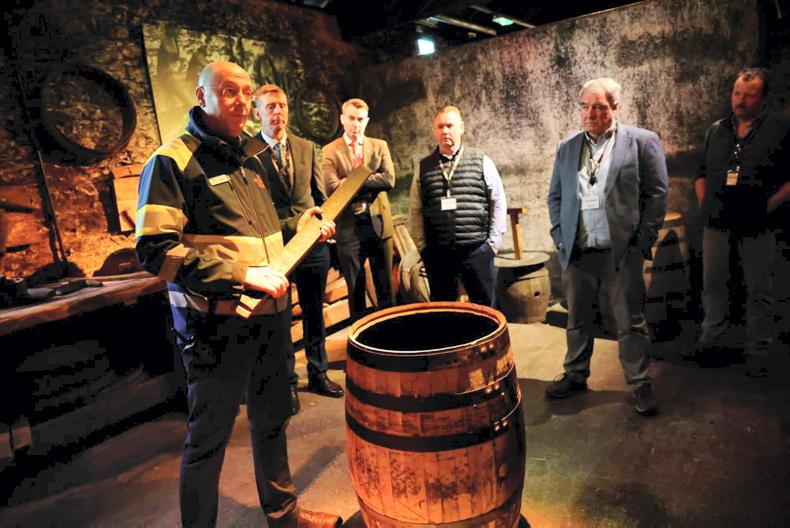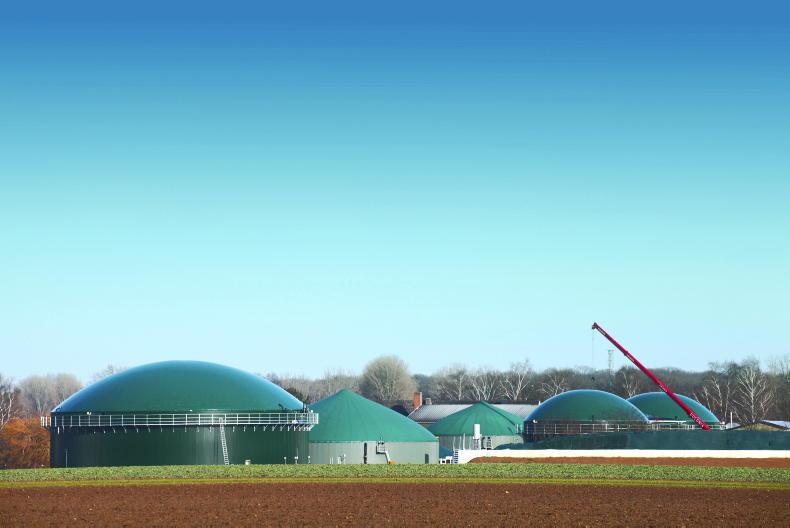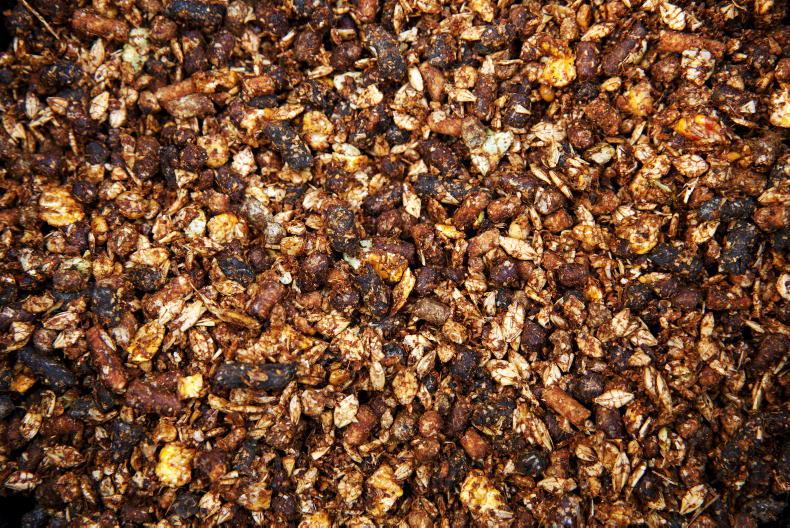The RDS Spring Agriculture and Forestry Awards are back after a two-year pandemic-enforced absence. The attraction of this annual event is its diversity and ability “to highlight what farmers, foresters, and agri-entrepreneurs accomplish on their farms and in their communities,” said RDS president Professor Owen Lewis.
The forestry awards, supported by the Department of Agriculture, Food and the Marine, were presented by Minister of State Pippa Hackett. Judges Henry Phillips, Tony Mannion and Jim Reidy visited forests and woodlands in all four provinces before choosing the award winners in three categories – community, production and farm forestry.
Community woodland
The Lord’s Wood, owned by Coillte and developed by the Baltinglass and District Forum Walkways Group, won the 2022 Community Woodlands Award.
Utilising funds from the Department’s NeighbourWood Scheme, the site “has been developed over recent years to include a looped walk and fencing, as well as a much-needed thinning operation to allow native trees to thrive and biodiversity to flourish”, said Henry Phillips, chair of the judging panel.
“The Lord’s Wood provides a recreational resource for both locals and visitors alike, with a noticeable increase in numbers since pathways have been established. Like many other amenity woodlands, it came into its own during Covid-19.”
Production forestry
Matthew Forde of Seaforde Estate, Co Down, won the 2022 Production Forestry award.
“The 168ha estate has evolved and adapted with each successive generation of the Forde family over four centuries,” said Phillips.
“Timber production is the main source of income for the estate and, where possible, local contractors are used, which supports employment in the community.”
Forde outlined his approach in getting the silvicultural and environmental balance right in the estate’s woodlands.
“Our tasks are not only to manage commercial woodlands for the future, but also to sustain and restore ancient woodlands,” he said.
“In addition, we have participated in woodland expansive schemes by taking unproductive agricultural land into woodland, such as 15ac we planted two years ago with a mixture of broadleaves and conifers.”
He is not afraid to experiment with tree species selection. “We are pioneering for the future and we have to be brave in our species choice,” he said when discussing recent species he has planted including Cryptomeria japonica – Japanese cedar – which was introduced to Ireland in the 19th century.
Teagasc Farm Forestry Award
The Teagasc Farm Forestry Award recognises working farmers who are integrating multipurpose forestry and farming. Cathal Rudden from Stradone, Co Cavan, won the award this year for his eight-year-old plantation. A part-time sucker farmer, he planted half of his 48ha holding with Sitka spruce and oak.
“The land I planted is a couple of miles from the house and is a mixture of marginal and poor soils, so is ideal for forestry,” he said.
“I’m delighted with my decision to plant, because the trees are growing extremely well and the premium income is good. I qualified under the 20-year premium and the single farm payment, which is an added advantage. The years go by quickly, which is why I believe the current 15-year premium period is too short.”
Since planting, he has been actively involved in promoting forestry as chair of the Cavan IFA forestry committee and as a member of the Northeast Forestry Group.
In addition to the overall winners, prizes were also awarded to category runners-up – Carrigmeal Woodland, Co Laois; Mount Callan Tree Farm, Co Clare; and Willie and Avril Allshire’s holding in Rosscarbery, Co Cork.
The judges also commended the community woodland Twelve O’Clock Hills, Co Clare, and Desmond Drew’s forest near Julianstown, Co Meath.
Paul Farrelly, RDS agriculture and enterprise programme manager, encouraged forest owners to enter the 2023 awards, which will be announced in the coming weeks.
Trees meet cheese, tourism and free range pork at RDS awards
The RDS awards are a recognition of sustainable land use as farmers increasingly diversify. Today’s farmers look beyond traditional agriculture to the forest and even to the seashore to source health and nutrition products.
While forest owners and foresters present at the recent RDS event were primarily interested in the forestry and woodland awards, the occasion demonstrated that sustainable land use cannot be compartmentalised anymore.
For example, Teresa Roche, founder of Kylemore Farmhouse Cheese, outlined the need for whole farm diversification and sustainability.
The outright winner of the Sustainable Rural Innovation Award, she is conscious of the need for sustainable management on the Roche family farm in the foothills of SlieveAughty Mountains (on the Co Galway side).
The cheese is produced from the farm’s grass-fed pedigree dairy herd, but, as Teresa pointed out, “we are also exploring ways to reduce the farm carbon footprint”.
These include the use of natural fertilisers, while the family’s 20-year-old forest is not only “providing good income security” according to Teresa’s father Bertie, but it is also playing a major role in sequestering carbon.
Likewise, the Allshire family, who produce Caherbeg Free-Range Pork in Rosscarbery, have discovered the economic potential of forestry, as well as a way to reduce their carbon footprint.
Runners up in the Teagasc Farm Forestry Award, the Allshires also utilise the forest and farm for tourism and as an ideal environment for raising their herd of free-range pigs to produce their Caherbeg pork products in Co Cork.










SHARING OPTIONS